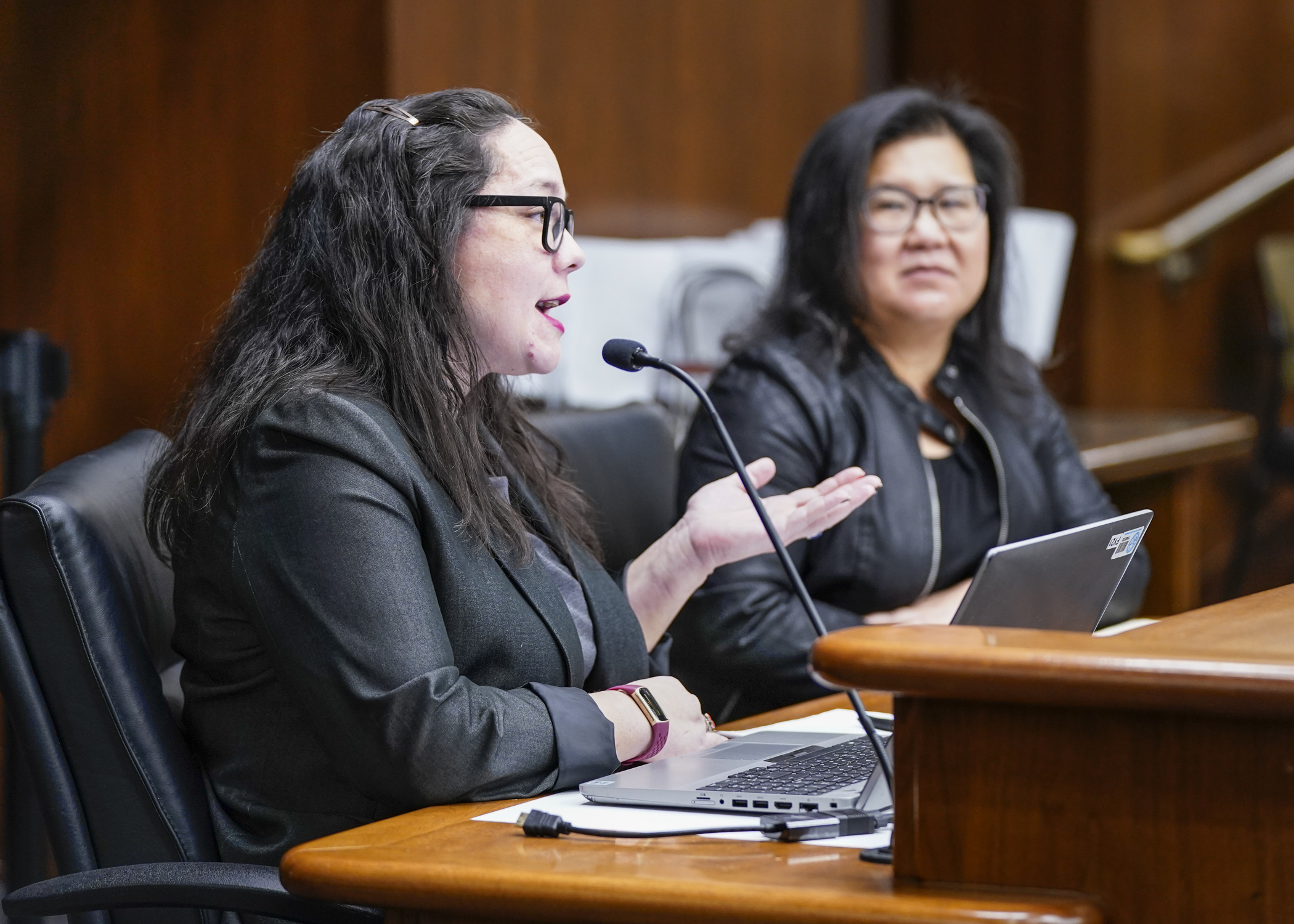House panel OKs bill to prohibit employers from asking applicants about past salaries

A starting salary can set a person’s earning potential for an entire career. That works against women and others who continue to face salary discrimination in the workplace.
So said Rep. Kaohly Vang Her (DFL-St. Paul) to the House Judiciary Finance and Civil Law Committee Tuesday.
Her said a white woman makes 80 cents on average for every dollar a man makes in the state, pay inequities that will persist if Minnesotans have future salaries anchored to their past pay.
Data from the Department of Human Rights show the wage gap is even worse for Asian, Black and Native American women, with Latinas having the largest wage gap of 53 cents for every dollar a man makes, she said. “The pay gap in Minnesota is very real.”
Her sponsors HF1625, to prevent employers, including labor unions and employment agencies, from asking about a prospective employee’s past pay, which supporters say could then be used as an anchor for future salaries. A job applicant could volunteer their past pay.
The committee approved the bill, as amended, on a split-voice vote and sent it to the House Labor and Industry Finance and Policy Committee.
A similar bill sponsored by Her in 2021 was passed by the House but did not progress in the Senate.
“Limiting a woman’s future pay by basing it on their previous compensation in an unequal system only continues the pay gap cycle and actually exacerbates the issue,” wrote Marisa C. Williams, CEO of Girl Scouts River Valleys.
Human Rights Commissioner Rebecca Lucero said an employer does not violate the state’s equal pay act by paying women less if that wage disparity is based on a prospective employee’s pay history.
As a result, the gender and wage gap persists in Minnesota.
“In Minnesota we have not narrowed this over the past five years,” Lucero said. “When Minnesota passes this bill, we will join a groundswell of over 20 states that have already ended the pay history question and will bring Minnesota one step closer to closing the pay gap.”
Rep. Brion Curran (DFL-Vadnais Heights), who has worked in the human resources field, said past pay has “absolutely nothing to do” with skill level and job competency. “In my mind, asking for pay history is really just fishing for cheap labor.”
Rep. Peggy Scott (R-Andover) finds the bill too burdensome for many small businesses. For example, she said the “rebuttable presumption” clauses in the bill’s enforcement provisions would force business to prove their innocence if a discriminatory action were brought against them.
Her said states using rebuttable presumption enforcement mechanisms are more successful in reducing the pay gap.
Related Articles
Search Session Daily
Advanced Search OptionsPriority Dailies
Speaker Emerita Melissa Hortman, husband killed in attack
By HPIS Staff House Speaker Emerita Melissa Hortman (DFL-Brooklyn Park) and her husband, Mark, were fatally shot in their home early Saturday morning.
Gov. Tim Walz announced the news dur...
House Speaker Emerita Melissa Hortman (DFL-Brooklyn Park) and her husband, Mark, were fatally shot in their home early Saturday morning.
Gov. Tim Walz announced the news dur...
Lawmakers deliver budget bills to governor's desk in one-day special session
By Mike Cook About that talk of needing all 21 hours left in a legislative day to complete a special session?
House members were more than up to the challenge Monday. Beginning at 10 a.m...
About that talk of needing all 21 hours left in a legislative day to complete a special session?
House members were more than up to the challenge Monday. Beginning at 10 a.m...